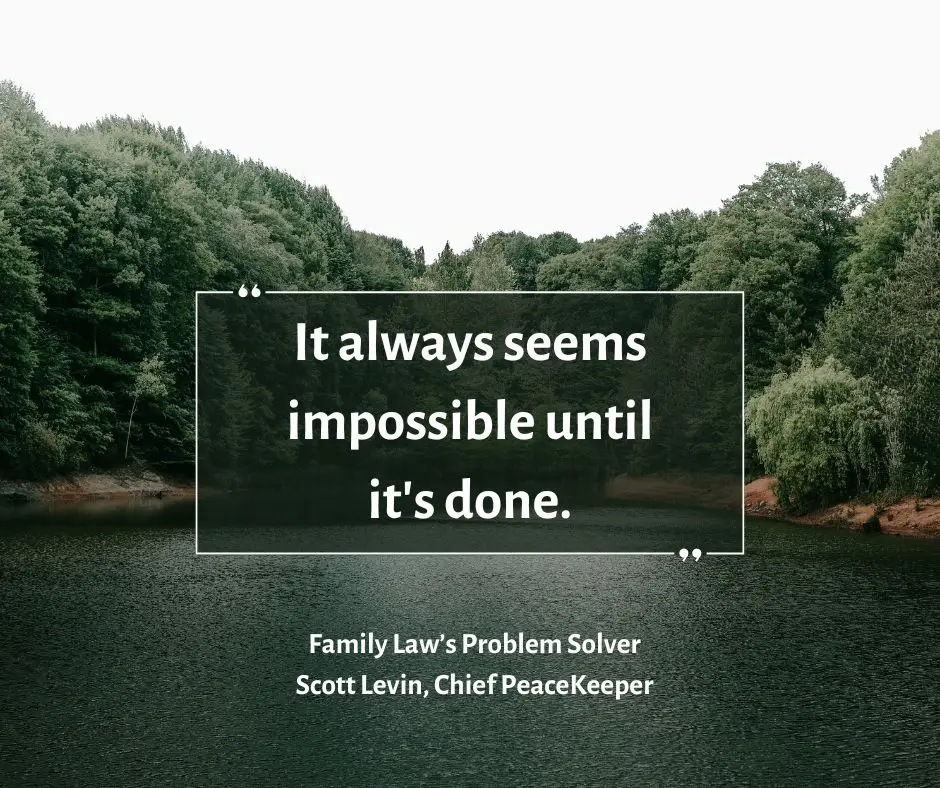Communicating with your spouse is essential for mediation. Without good communication, the mediation process can be unnecessarily protracted. Although good communication may be ideal, some divorcing couples find their interactions to be filled with hostility, emotionally draining and sometimes unproductive. There are ways to improve communication with your spouse even in a divorce so that you can have a positive co-parenting relationship after divorce. Utilizing the tips outlined below can help keep your divorce on track for favorable and swift resolution.
Define The Communication Method
Couples need to establish new boundaries for communicating with your spouse during divorce. Prior to divorce couples may have just texted or called your spouse at work, however this may irritate your spouse depending on the relationship status and level of hostility. Establishing clear guidelines on how you want to communicate during and after your divorce can help keep tempers calm and your divorce moving in the right direction.
The method you choose to initiate communication with your spouse must be appropriate for the subject.
- Time-sensitive information should be communicated by text or telephone. Notifying your spouse that a child is injured or that you will be late to pick up the kids are good examples of time-sensitive communications better suited for text or phone.
- Less urgent matters could be communicated via email.
Whenever possible, for important child-centered issues that need to be addressed, face to face conversations should be scheduled in advance, especially if you think the conversation may be heated. Designating a specific time for lengthy, face to face discussions also allows you to find a public or neutral ground for your discussion and prevents the children from overhearing your conversations.
Getting your spouse to accept these new boundaries is not always easy but incorporating guidelines to how you chose to communicate with your spouse will help keep you calm and better able to respond appropriately to the situation at hand.
Communicate Is Key During Divorce
You may be able to agree upon the ground rules without assistance, or you may need help from a top rated mediation attorney. If feelings are still raw, an expert may be able to help the two of you develop a vision of what your post-divorce relationship could look like.
One good rule to follow is to make bringing up the past off limits. You are forging a new relationship with your partner, and focusing on the future is a key to crafting a settlement during divorce. The more that you discuss what happened in 2012 at your parents or the Chicago trip in 2017 that went awry, the less you are focused on what’s important which is coming to an equitable settlement to prioritize the best interests of your children. You were unable to solve your issues during your marriage, so why rehash them?

Focus On One Issue At A Time
A tunnel-vision focus on the present issue can help you avoid unnecessary and heated discussions about past behavior or transgressions. Often times well-intentioned couples get sidetracked from the narrow issue they are trying to resolve by dwelling on the past. Staying focused on one issue at at time will help you resolve all the aspects in your divorce more quickly. One key benefit of divorce mediation is that a settlement can be agreed upon within a matter of weeks. If you find yourself getting sidetracked, attempt to refocus your conversation by saying, “I think we got sidetracked here. Let’s focus on….” If your efforts to refocus fail, it’s time to end the conversation.
Be An Active Listener
An immediate response is not always required and there are respectful ways to end the conversation. Many people stop listening in order to prepare their rebuttal—don’t make this common mistake. Take time to process what is being said before jumping to the next step of communicating your response. One of the best ways to be sure of what someone is saying—and to remember exactly what they said—is to write it down. Taking notes also ensures that you aren’t getting lost in what you would like to say next. When you do start speaking, start with a summary of what the other person has said. Making sure that you correctly understood what was said is vital to moving forward toward a solution.
You can begin the low-stress process with Scott F. Levin, Esq, at San Diego Divorce Mediation. You’ll have access to flexible options, including virtual meetings. Reach out today to schedule a consultation and see the difference mediation can make.











